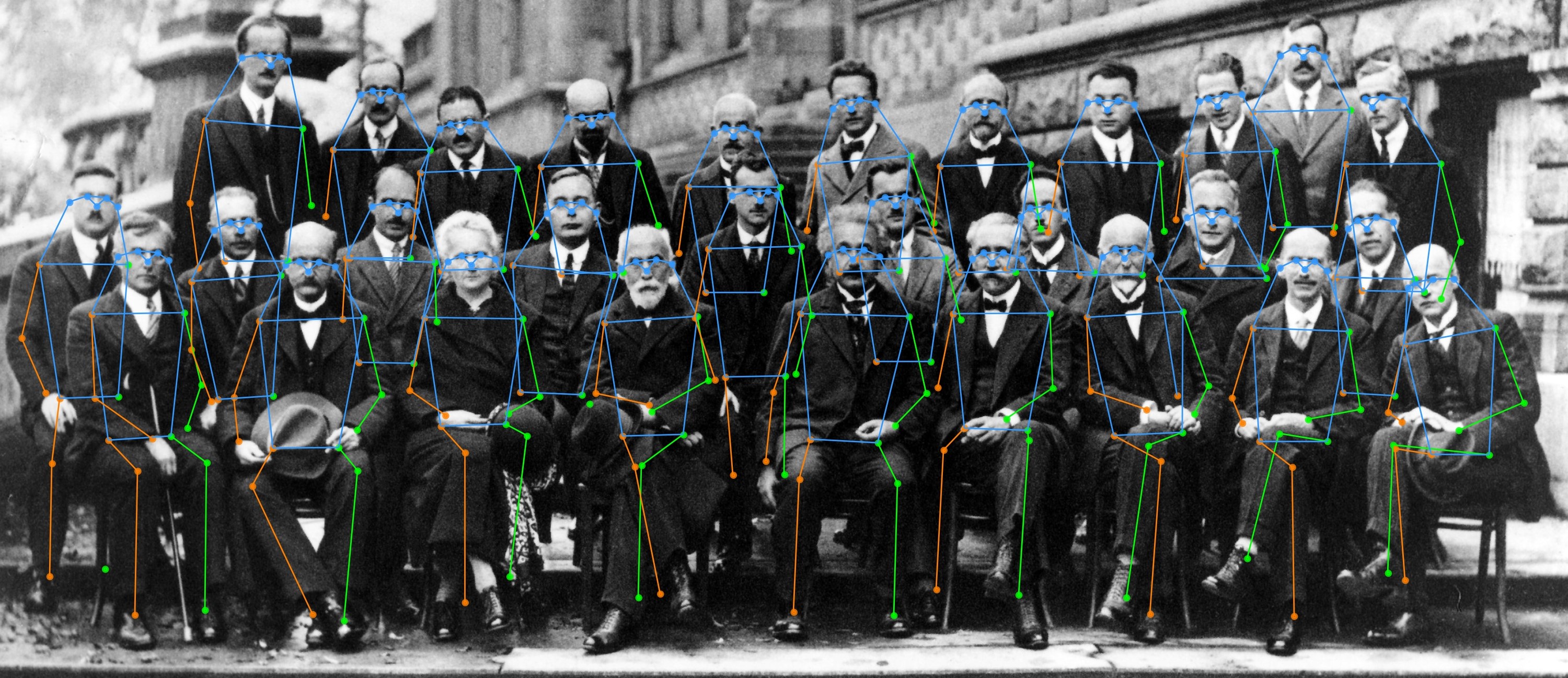This project implements a YOLOX-based human pose estimator, utilizing the approach outlined in YOLO-Pose: Enhancing YOLO for Multi Person Pose Estimation Using Object Keypoint Similarity Loss (CVPRW 2022). This pose estimator is lightweight and quick, making it well-suited for crowded scenes.
📌 For improved performance and compatibility, consider using YOLOX-Pose which is built into MMPose, which seamlessly integrates with MMPose's tools. To learn more about adopting YOLOX-Pose in your workflow, see the documentation: YOLOX-Pose.
-
Python 3.7 or higher
-
PyTorch 1.6 or higher
-
MMEngine v0.6.0 or higher
-
MMCV v2.0.0rc4 or higher
-
MMDetection v3.0.0rc6 or higher
-
MMYOLO v0.5.0
-
MMPose v1.0.0rc1 or higher
All the commands below rely on the correct configuration of PYTHONPATH, which should point to the project's directory so that Python can locate the module files. In yolox-pose/ root directory, run the following line to add the current directory to PYTHONPATH:
export PYTHONPATH=`pwd`:$PYTHONPATHUsers can apply YOLOX-Pose models to estimate human poses using the inferencer found in the MMPose core package. Use the command below:
python demo/inferencer_demo.py $INPUTS \
--pose2d $CONFIG --pose2d-weights $CHECKPOINT --scope mmyolo \
[--show] [--vis-out-dir $VIS_OUT_DIR] [--pred-out-dir $PRED_OUT_DIR]For more information on using the inferencer, please see this document.
Here's an example code:
python demo/inferencer_demo.py ../../tests/data/coco/000000000785.jpg \
--pose2d configs/yolox-pose_s_8xb32-300e_coco.py \
--pose2d-weights https://download.openmmlab.com/mmpose/v1/projects/yolox-pose/yolox-pose_s_8xb32-300e_coco-9f5e3924_20230321.pth \
--scope mmyolo --vis-out-dir vis_resultsThis will create an output image vis_results/000000000785.jpg, which appears like:
Prepare the COCO dataset according to the instruction.
To train with multiple GPUs:
bash tools/dist_train.sh $CONFIG 8 --ampTo train with slurm:
bash tools/slurm_train.sh $PARTITION $JOBNAME $CONFIG $WORKDIR --ampTo test with single GPU:
python tools/test.py $CONFIG $CHECKPOINTTo test with multiple GPUs:
bash tools/dist_test.sh $CONFIG $CHECKPOINT 8To test with multiple GPUs by slurm:
bash tools/slurm_test.sh $PARTITION $JOBNAME $CONFIG $CHECKPOINTResults on COCO val2017
| Model | Input Size | AP | AP50 | AP75 | AR | AR50 | Download |
|---|---|---|---|---|---|---|---|
| YOLOX-tiny-Pose | 416 | 0.518 | 0.799 | 0.545 | 0.566 | 0.841 | model | log |
| YOLOX-s-Pose | 640 | 0.632 | 0.875 | 0.692 | 0.676 | 0.907 | model | log |
| YOLOX-m-Pose | 640 | 0.685 | 0.897 | 0.753 | 0.727 | 0.925 | model | log |
| YOLOX-l-Pose | 640 | 0.706 | 0.907 | 0.775 | 0.747 | 0.934 | model | log |
We have only trained models with an input size of 640, as we couldn't replicate the performance enhancement mentioned in the paper when increasing the input size from 640 to 960. We warmly welcome any contributions if you can successfully reproduce the results from the paper!
NEW!
MMYOLO also supports YOLOX-Pose and achieves better performance. Their models are fully compatible with this project. Here are their results on COCO val2017:
| Backbone | Size | Batch Size | AMP | RTMDet-Hyp | Mem (GB) | AP | Config | Download |
|---|---|---|---|---|---|---|---|---|
| YOLOX-tiny | 416 | 8xb32 | Yes | Yes | 5.3 | 52.8 | config | model | log |
| YOLOX-s | 640 | 8xb32 | Yes | Yes | 10.7 | 63.7 | config | model | log |
| YOLOX-m | 640 | 8xb32 | Yes | Yes | 19.2 | 69.3 | config | model | log |
| YOLOX-l | 640 | 8xb32 | Yes | Yes | 30.3 | 71.1 | config | model | log |
If this project benefits your work, please kindly consider citing the original papers:
@inproceedings{maji2022yolo,
title={YOLO-Pose: Enhancing YOLO for Multi Person Pose Estimation Using Object Keypoint Similarity Loss},
author={Maji, Debapriya and Nagori, Soyeb and Mathew, Manu and Poddar, Deepak},
booktitle={Proceedings of the IEEE/CVF Conference on Computer Vision and Pattern Recognition},
pages={2637--2646},
year={2022}
}@article{yolox2021,
title={{YOLOX}: Exceeding YOLO Series in 2021},
author={Ge, Zheng and Liu, Songtao and Wang, Feng and Li, Zeming and Sun, Jian},
journal={arXiv preprint arXiv:2107.08430},
year={2021}
}Additionally, please cite our work as well:
@misc{mmpose2020,
title={OpenMMLab Pose Estimation Toolbox and Benchmark},
author={MMPose Contributors},
howpublished = {\url{https://github.com/open-mmlab/mmpose}},
year={2020}
}
